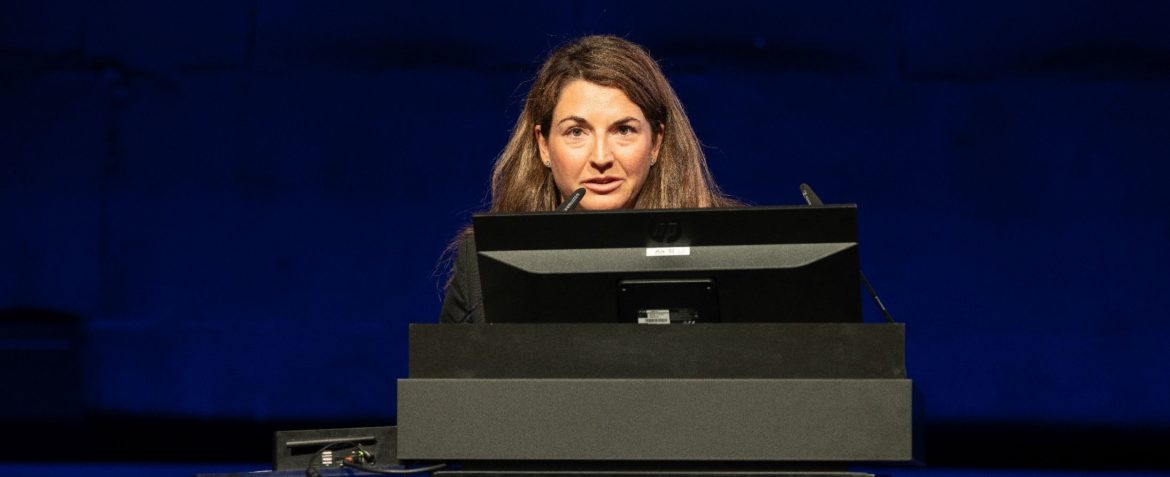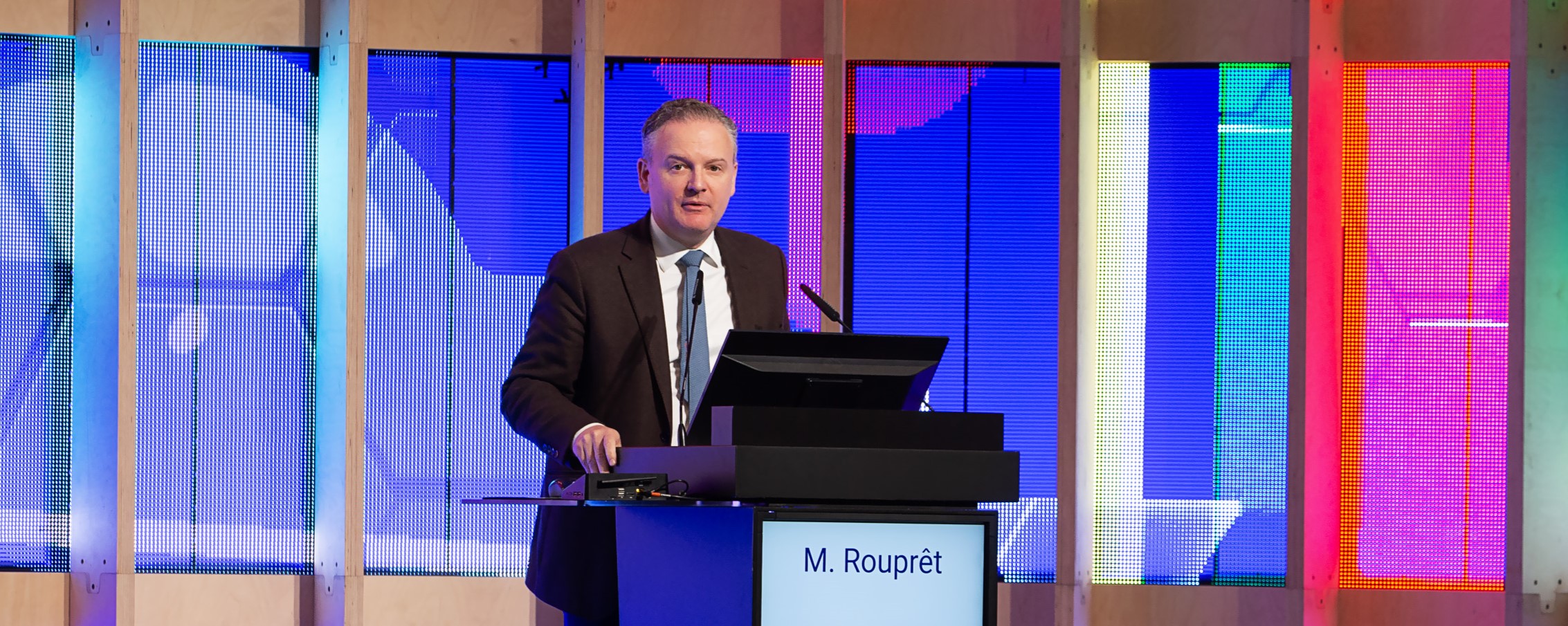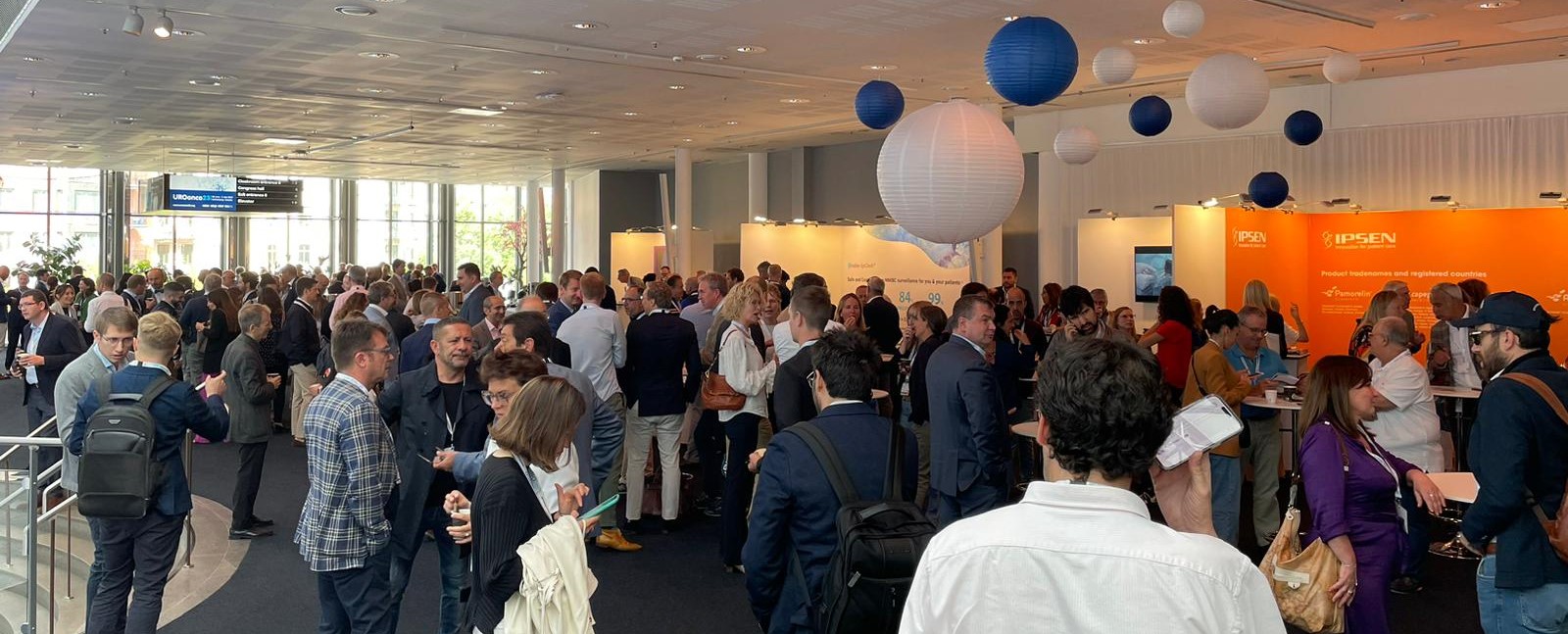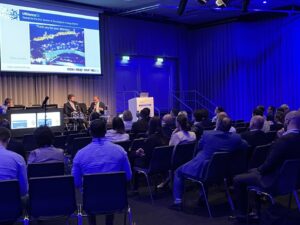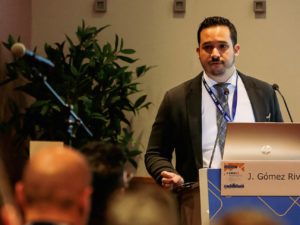There is much excitement around the inaugural UROonco23 meeting, which is the new and improved EAU Section of Oncological Urology (ESOU) meeting combined with the educational ONCO Updates on prostate cancer, bladder cancer and renal cell carcinoma. Taking place in Gothenburg, Sweden, from 30 June to 2 July, the three day scientific programme has been designed by experts to share a broad range of the latest updates and advancements in onco-urology.
The integration of these meetings enables delegates to get the most recent findings in genitourinary cancers (GU) at a single location, as opposed to attending numerous meetings throughout the year. This ‘all-in-one’ comprehensive structure is expected to not only save time, but also foster collaboration among different onco-urology groups and facilitate the sharing of knowledge and expertise.
The meeting will be introduced by Prof Morgan Rouprêt (FR), chairman of ESOU and member of the UROonco23 steering committee. The format will be different from the former ESOU meeting, with an auditorium for the main scientific programme, and dedicated rooms for the more personalised sessions, such as: clinical case discussions, Real World Onco-Urology, and the STEPS programme.
Expert insights
With four plenary sessions dedicated to prostate cancer, ESOU board member Dr. Gianluca Giannarini (IT), shares some details on the hot topics that will be discussed: “Prostate cancer sessions will cover the whole spectrum of the disease, with a special focus on novel image-based strategies for early detection, and management of locally advanced and oligometastatic disease in the era of PET imaging. Novel strategies of intensification and combination treatments in the overt metastatic setting will also be deliberated on.”
“Of particular interest, study investigators will give updates on several ongoing clinical trials (e.g. PEACE-1 and RADICALS-HD), and there will be thought-provoking debates on some EAU Guidelines, including challengers, defenders and a final verdict.”
“2023 is proving to be an exciting year for advances in the care of patients with prostate cancer. Important data was released earlier this year on the efficacy and safety of combination treatments for men with advanced disease, both in the hormone-sensitive (ARASENS), and in the castration-resistant (MAGNITUDE, PROpel and TALAPRO-2) stage. At the recently concluded EAU23, the long-term results of the ProtecT trial were reported, showing low mortality in men with localised disease irrespective of treatment allocation to monitoring, surgery or radiation therapy. Prostate cancer research is in great ferment with continuous flourishing’s of clinical trials, e.g., the potentiality of molecular imaging for diagnosis and treatment, and the efficacy of novel paradigms integrating loco-regional and systemic therapies, with the aim to offer individualised pathways of care for what is among the most common malignancies.”
Six trial updates for BCa
Dr. Maria Carmen Mir Maresma (ES), also part of the ESOU board, is co-chairing several plenary sessions on bladder cancer, and shares some of her programme highlights: “We will have six trial updates, five in bladder cancer and one on upper tract urothelial carcinoma (UTUC). The trial on UTUC will present interim analysis on the use of neoadjuvant chemo + IO for high-risk UTUC prior to radical nephroureterectomy.”
“Importantly, Prof. Seth Lerner (US) will present the primary results of SWOG 1011 (standard vs externed pelvic lymph node dissection during radical cystectomy). These results are eagerly awaited. We had a German trial that presented negative results a few years back and we are looking forward to hearing what will happen with PLND during radical cystectomy (very interesting for urologists); Other trial updates will include CheckMate 274 about adjuvant nivolumab after RC, which Dr. Fred Witjes (NL) will present with long-term follow-up.”
According to Dr. Mir Maresma, there is much interest around future research results that will include the use of antibody drug conjugates at earlier stages of MIBC disease and next-generation therapies for NMIBC, mostly with intravesical delivery.
New ASCO-EAU penile cancer guidelines
Dr. Christian Fankhauser (CH) is co-chairing two plenary sessions on rare tumours, with a focus on how to best manage men with penile cancer and palpable inguinal nodes, as well as the management of men with testis cancer and enlarged retroperitoneal lymph nodes. “Of particular interest, there will be points debated from the recently released (new) ASCO-EAU collaborated penile cancer guidelines. These new guidelines address every aspect of care from diagnosis to treatment and follow-up, with a patient-centred approach. They incorporate the many disciplines involved in the care of a patient with penile cancer, including urology, medical oncology, radiation oncology, pathology, and surgery.”
A case presentation and rebuttal on the topic of systemic therapy for cN2 penile cancer, concluding with deliberations from a panel of discussants is also a programme highlight, according to Dr. Fankhauser.
The second plenary session on rare tumours encompasses the evolving landscape in the treatment of stage II testicular seminoma and non-seminoma, in particular, primary retroperitoneal lymph node dissection (RPLND).
RCC – future goals and targets
There are two plenary sessions on renal cancer, covering a range of topics including a lecture on genetic screening by Prof. Marston Linehan (US), OpeRa trial updates from Prof. Marc-Oliver Grimm (DE), and a panel discussion on the management of VHL-related and other hereditary kidney cancers. A lively debate will take place on the adjuvant treatment for advanced kidney cancer, and Dr. Friederike Schlürmann (FR) will review the future goals and targets in the management of advanced kidney cancer. There will also be an in-depth panel discussion on the treatment of oligometastatic RCC, including the role of cytoreductive nephrectomy (CN).
Interactive roundtable sessions
New developments and technologies in GU cancers will be deliberated on via interactive roundtable discussions, with up to nine uro-oncology clinical cases (a maximum of three on each topic – prostate cancer, bladder cancer and renal cancer) being presented in these unique sessions developed by the YAU. There will be lively discussions between key opinion leaders and delegates. To ensure small and dynamic group sizes, there are three different session times to choose from. Time allowing, all three sessions will include the same clinical cases.
During UROonco23 there will also be an award presentation for the best article published in the European Urology Oncology over the year, with the winning author sharing the article highlights.
The UROonco23 meeting provides European-based urologists with the opportunity to get a global perspective on GU cancer updates, with the scientific programme covering the latest research findings from other urological gatherings around the world, such as ASCO GU, AUA2023 and ASCO 2023. The late registration discount ends on 15 June 2023 (23:59 CEST).

